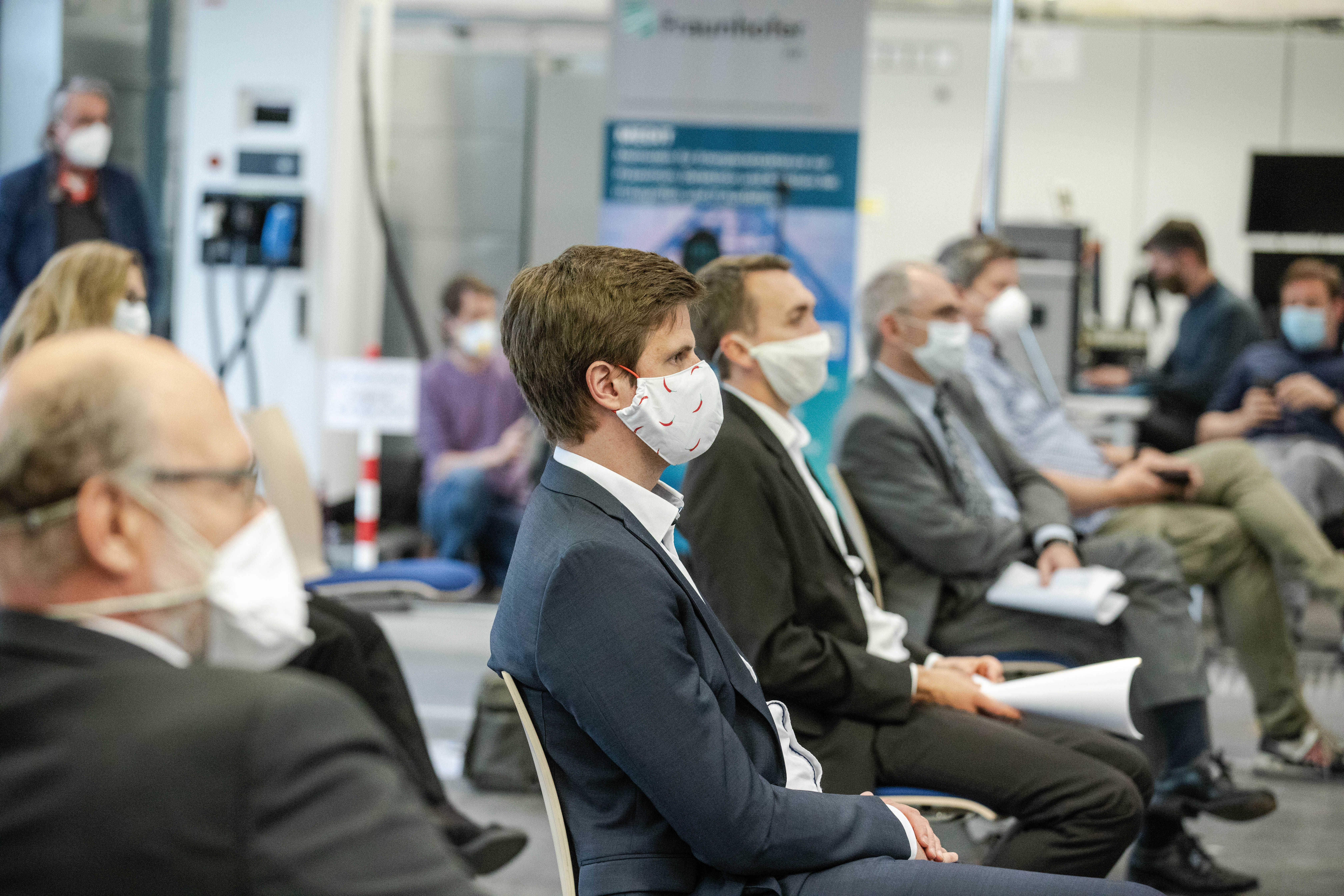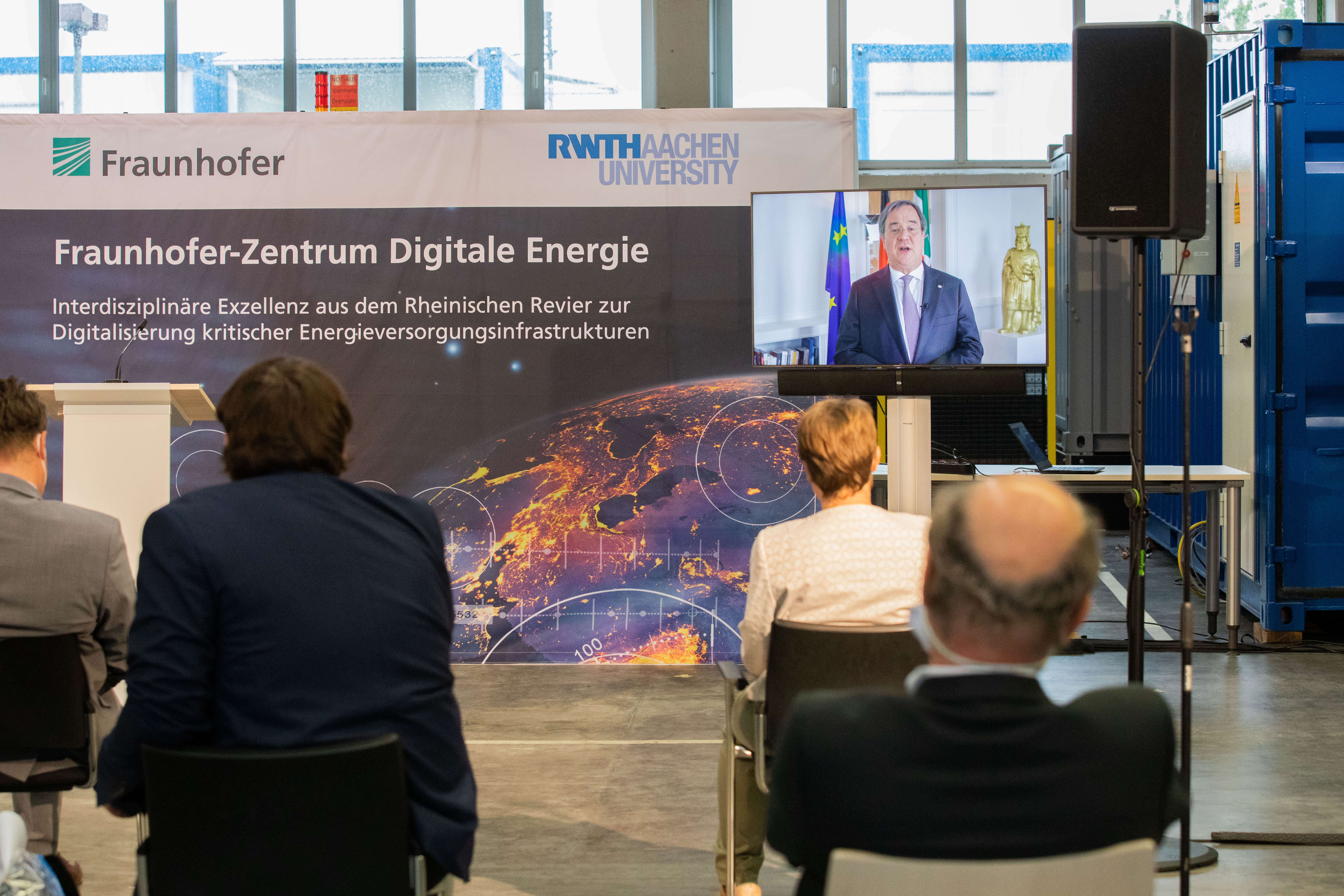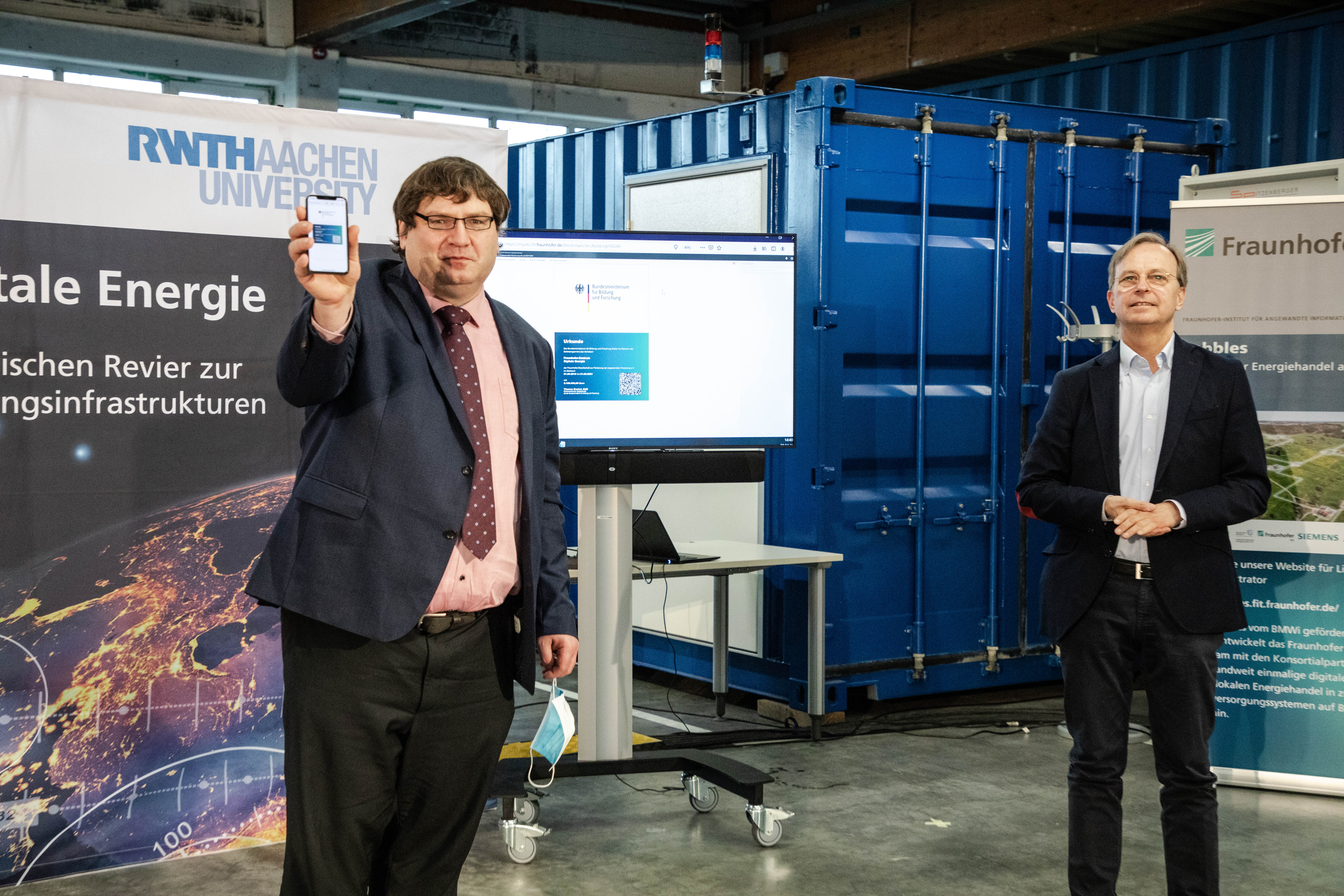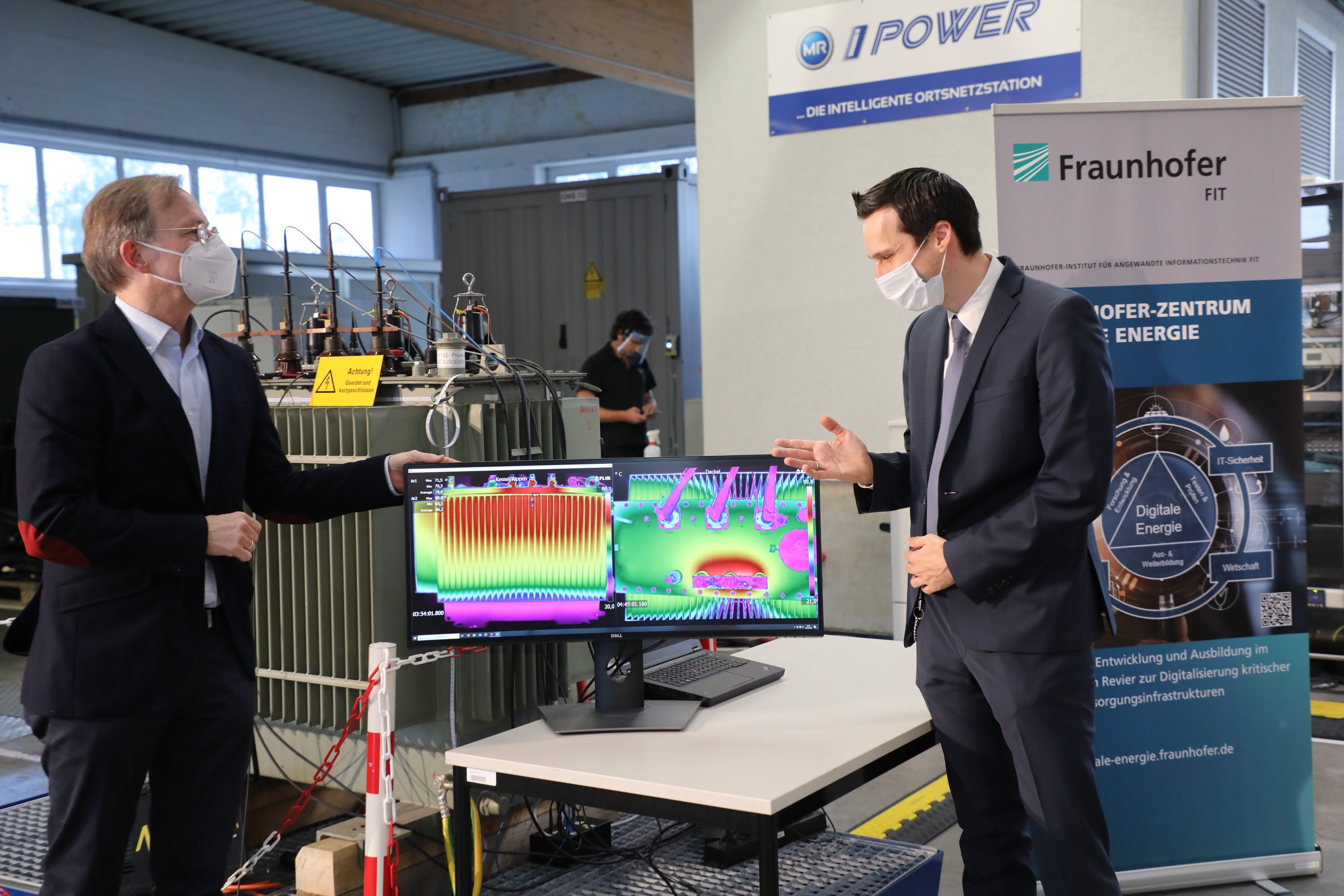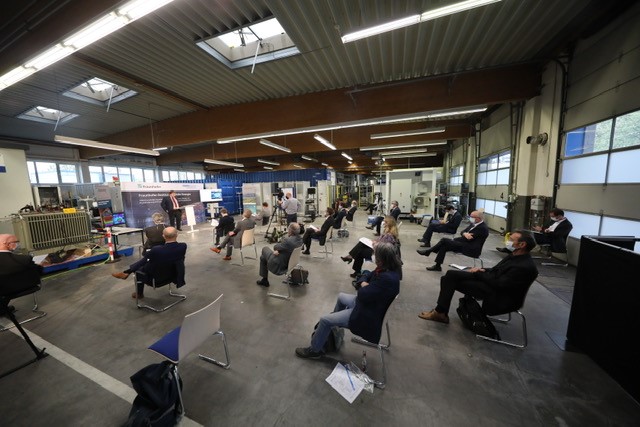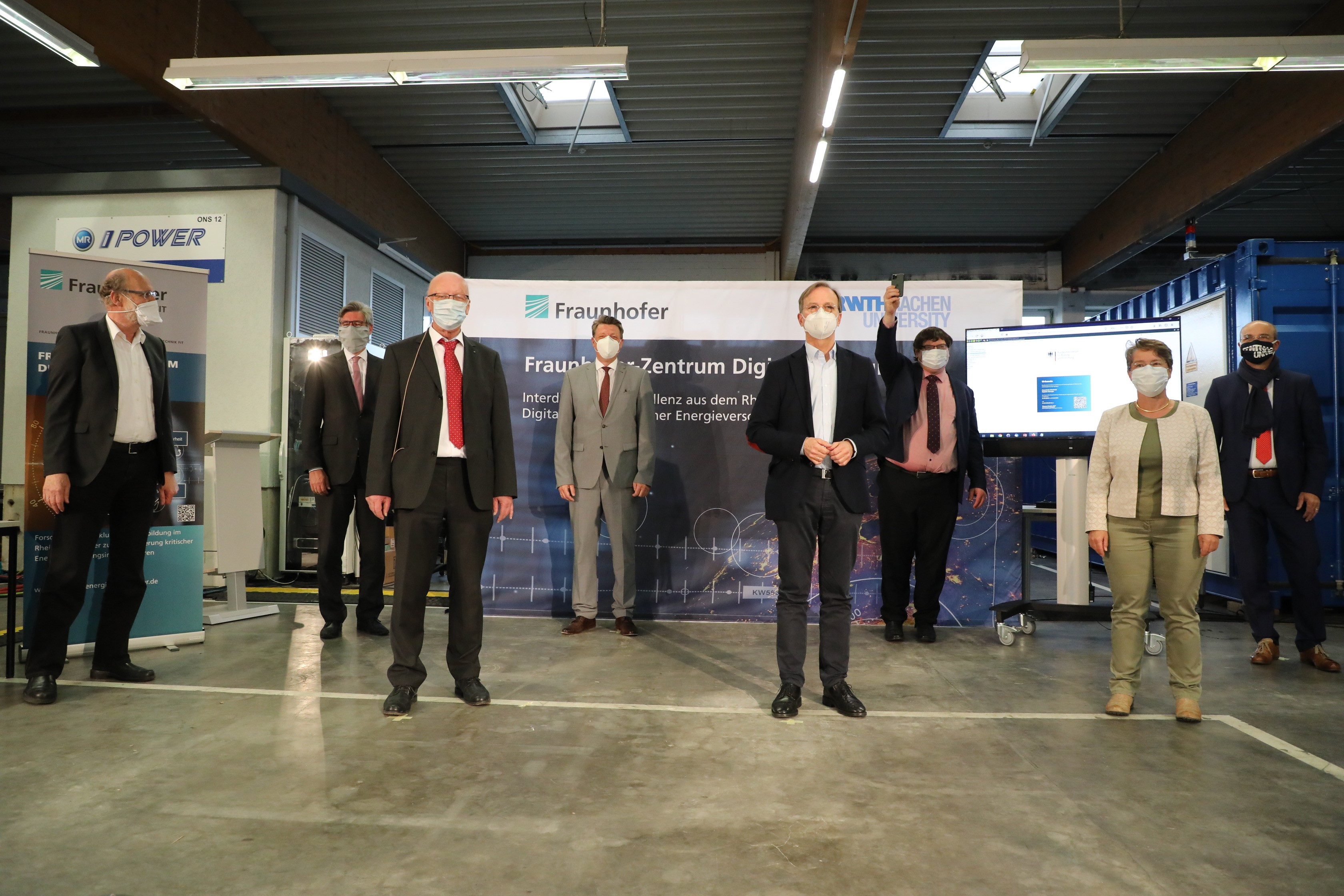Launch of the Fraunhofer Center Digital Energy
The Rhenish District is undergoing a profound transformation due to the phase-out of coal. The energy sector and energy-intensive industries, in particular, are facing significant challenges. The discontinuation of coal-fired power generation, the integration of various sectors (e.g., electricity, heat, mobility), and the accompanying digitization are presenting companies with changing markets and regulatory conditions. Aiming to navigate and capitalize on this transformation as an opportunity for the future, the German federal government and the state of North Rhine-Westphalia are supporting the establishment of the "Fraunhofer Center Digital Energy." The goal is to lay the foundations for technically reliable, resilient, and economically feasible digitized energy infrastructures in the region and transition them into operation. The center is being established by the Fraunhofer Institute for Applied Information Technology FIT (Prof. Stefan Decker and Prof. Matthias Jarke) in collaboration with the Fraunhofer Institute for Communication, Information Processing, and Ergonomics FKIE (Prof. Peter Martini), as well as the institutes IAEW (Prof. Albert Moser) and E.ON ACS (Prof. Antonello Monti) at RWTH Aachen University.
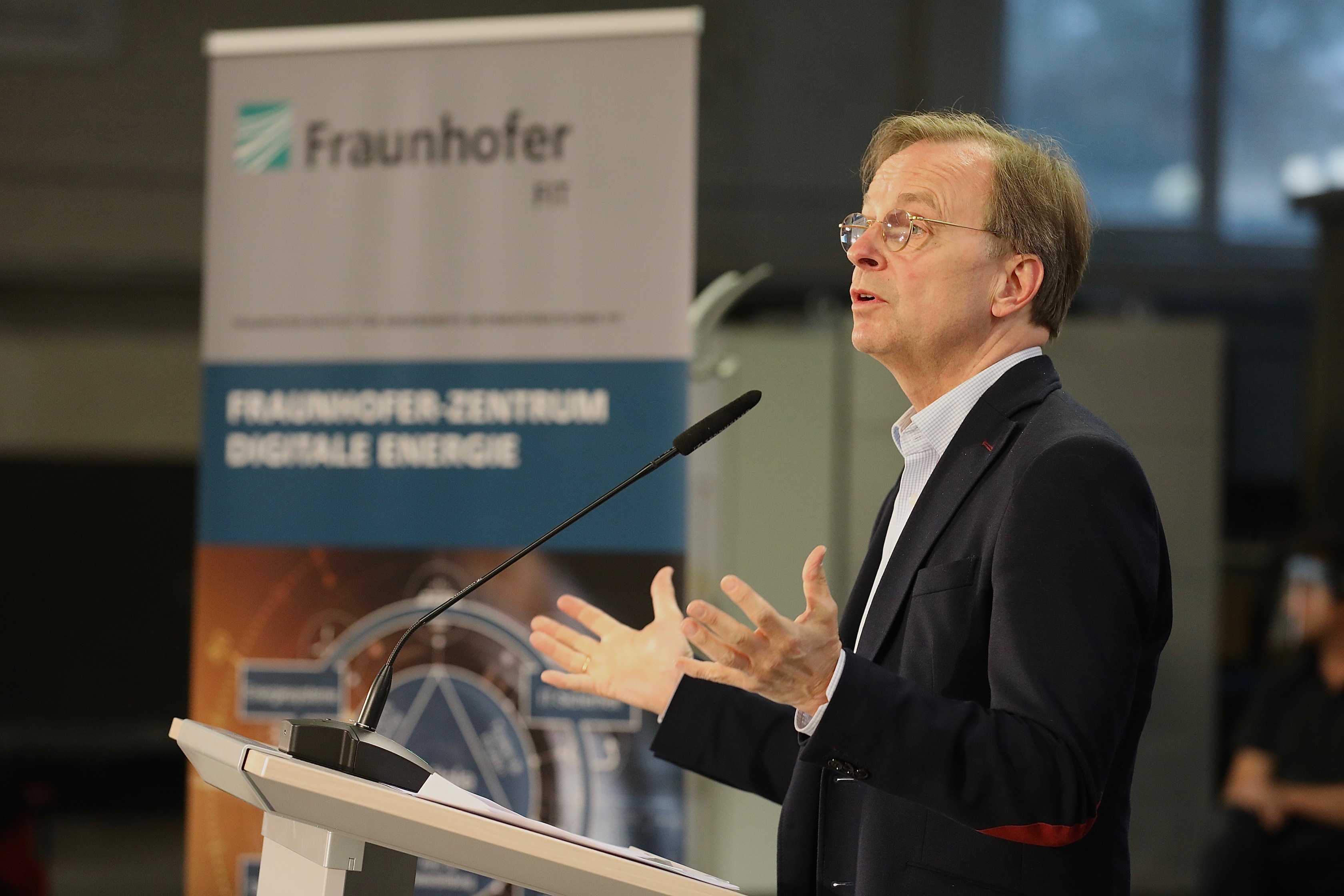
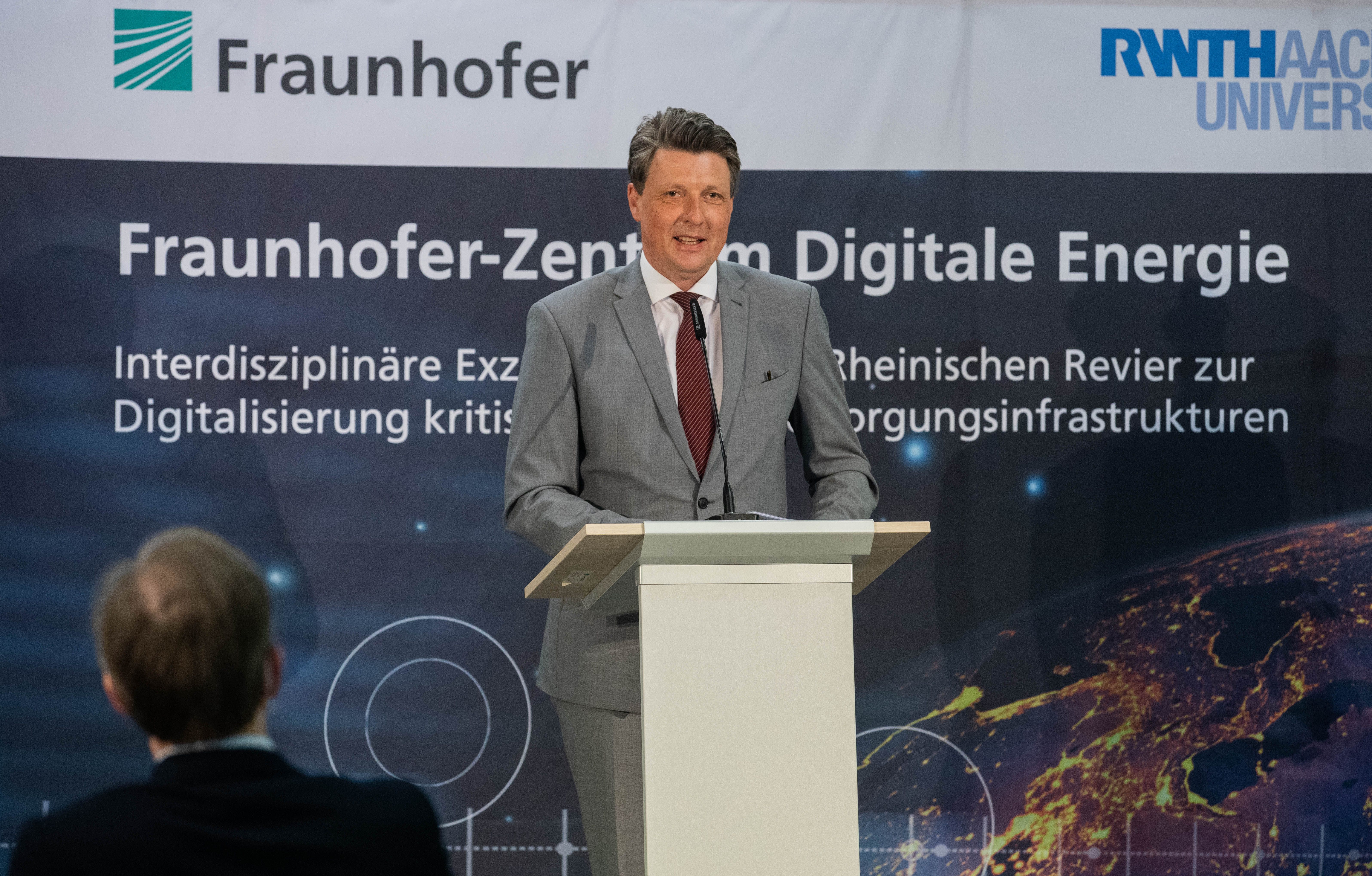
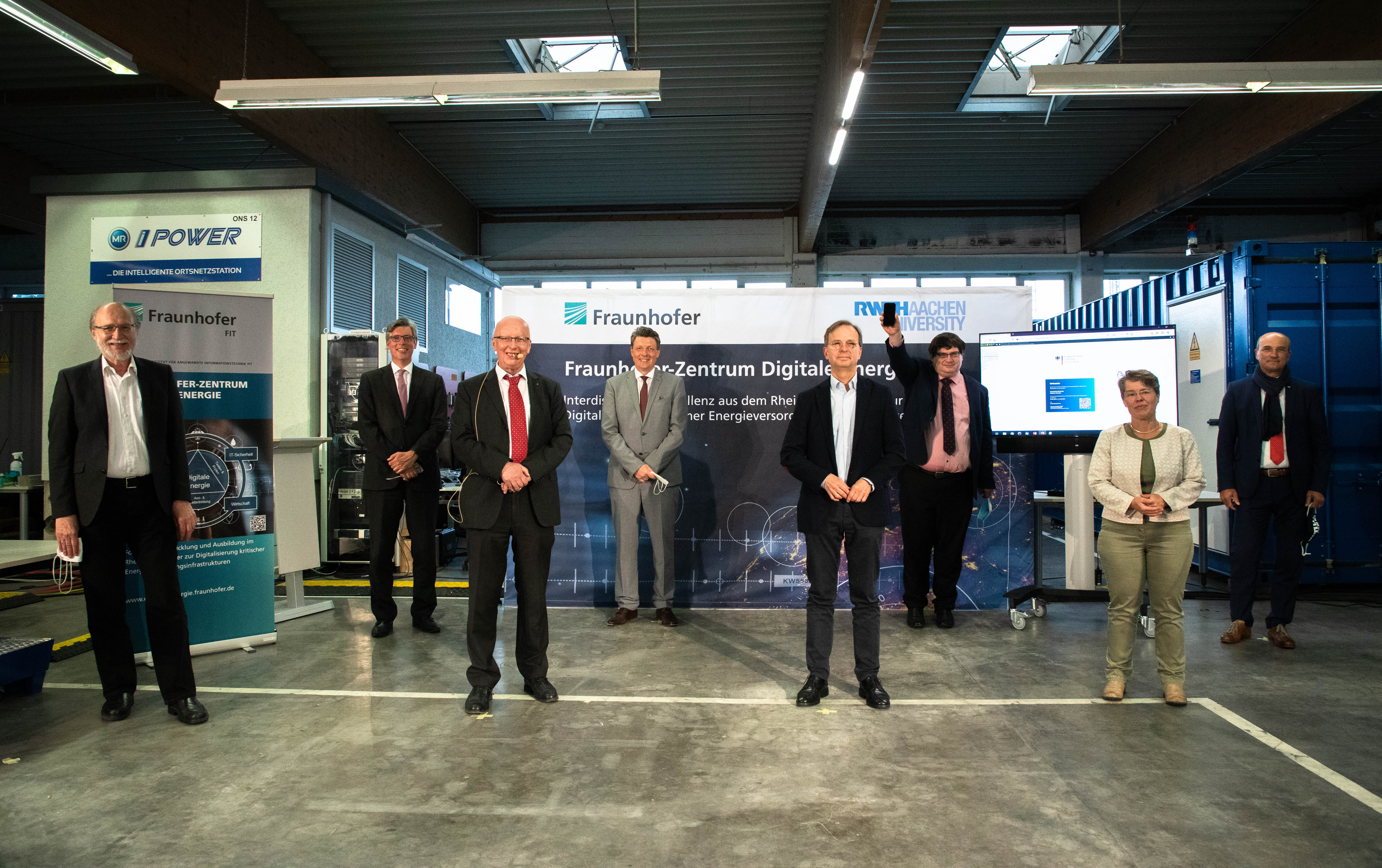
The Federal Ministry of Education and Research (BMBF) is funding the »Fraunhofer Center Digital Energy« with €5.1 million in the initial phase as part of an immediate program. In the presence of Thomas Rachel, Member of the German Bundestag and Parliamentary State Secretary at the BMBF, Alexandra Landsberg, Head of the Rheinisches Revier Coordination Unit at the Ministry of Economic Affairs, Innovation, Digitalization, and Energy (MWIDE), Marcel Philipp, Mayor of the city of Aachen, Prof. Ulrich Rüdiger, Rector of RWTH Aachen University, and Prof. Ralf Wehrspohn, Board Member of the Fraunhofer Society, officially presented the funding certificates during a press conference on behalf of the »Fraunhofer Center Digital Energy« to Prof. Stefan Decker and Prof. Matthias Jarke.
In a video message, Minister President Armin Laschet highlighted the uniqueness and significance of the center for the region: »The establishment of the Fraunhofer Center for Digital Energy in Aachen will create around 100 jobs under collective agreements. This is not only good news for the region but also for the innovation and energy state of North Rhine-Westphalia.« Laschet further stated, »North Rhine-Westphalia is a pioneering state in the energy transition. We need future-oriented solutions like the Fraunhofer Center for Digital Energy: the combination of innovative cutting-edge research, qualified professionals, and direct research transfer to practical applications creates a tremendous competitive advantage for the Rheinisches Revier. The center has great potential to contribute to the goal of becoming a European model region for secure and sustainable energy supply.«
Scientific Expertise Combined with a Practical Approach
According to Prof. Matthias Jarke, the »Fraunhofer Center Digital Energy« combines the expertise of renowned chairs in energy technology and computer science (RWTH Aachen University) with deep knowledge of digitization and its financial management (Fraunhofer FIT) as well as IT security (Fraunhofer FKIE). The center specifically addresses three pillars: »Research and Development« of new technologies and business models, »Education and Training« to attract qualified personnel, and »Testing and Certification« to ensure the integrability of research results into products and services.
Prof. Stefan Decker emphasized that the integration of an independent 10,000-volt distribution network enables the development and testing of IT security and digital technologies for future digitized energy supply systems within a real system. This would not be possible directly within the critical infrastructures of the energy supply. Thus, the Fraunhofer Center provides a unique practical relevance in research, development, and education.
Initial action for a succesful regional transofrmation
The »Fraunhofer Center Digital Energy« has been selected as an initial measure to initiate a successful structural change in the Rheinische Revier. The funding is intended to support the initial development of the center, including planning and preparation tasks, initial investments in technical equipment, and the development of training programs. Furthermore, the Fraunhofer Center Digital Energy is specifically included as a prioritized measure in the federal Structural Strengthening Act, setting the stage for future funding to establish an infrastructure to accommodate more than 100 employees.
During the ceremonial presentation of the funding certificates, Parliamentary State Secretary Thomas Rachel emphasized, »Digitization is a key enabler for a successful energy transition. With the Fraunhofer Center for Digital Energy, we are helping our companies to develop innovative technologies and new business models and to access qualified personnel. By bringing together science and industry in application-oriented research fields, the center will have a far-reaching impact on the entire region. Thus, the funding makes an important contribution to making the structural change in the Rheinische Revier towards an energy region of the future a true success story.«
The presentation of the funding certificate was conducted digitally, taking into account contact restrictions. A blockchain-based solution was used, which is also utilized by the Fraunhofer Academy for issuing and securely managing training certificates. Mr. Rachel electronically signed the certificate and transmitted it in a transaction to Prof. Decker.
Attractiveness for skilled professionals and young talents
According to Aachen's Mayor Marcel Philipp this initiative provides all the prerequisites to create a magnetic effect for the Rheinische Revier in terms of the development of skilled professionals and young talents. He stated, »Through its attractive and future-proof study programs, the Fraunhofer Center, via its further education program, addresses the requalification of employees in the region. It tackles issues such as skilled labor shortages and internal migration, offering citizens and businesses long-term, appealing perspectives.«
Prof. Ralf Wehrspohn, a member of the Fraunhofer Board of Directors, stated »The launch of the Fraunhofer Center for Digital Energy will make a significant contribution to the innovation-driven structural transformation in the Rheinische Revier and is a clear signal towards sustainable value creation. The new center creates another important bridge between research and application and will strengthen the regional economy as a catalyst for innovation.«
RWTH Rector Prof. Ulrich Rüdiger also expressed his explicit support for the establishment of the Fraunhofer Center in Aachen and emphasized the importance of this measure for the region and beyond. The combination of funding for dedicated, secure building infrastructure from the Coal Commission funds, along with the sustainable pooling of the strengths of Fraunhofer and RWTH, creates a unique and immediately operational research, testing, and training flagship throughout Europe.
The press conference was conducted in strict compliance with infection control measures against the backdrop of the COVID-19 pandemic. The opening speeches of all participants were recorded in a large laboratory environment. On Wednesday, April 29, 2020, at 3:00 p.m., a video podcast of an expert discussion will also be published on this page, where center researchers from energy technology, IT security, and business informatics will exchange concrete cooperation experiences, opportunities, and challenges with industry representatives and the energy hub manager of the Rheinische Revier.

